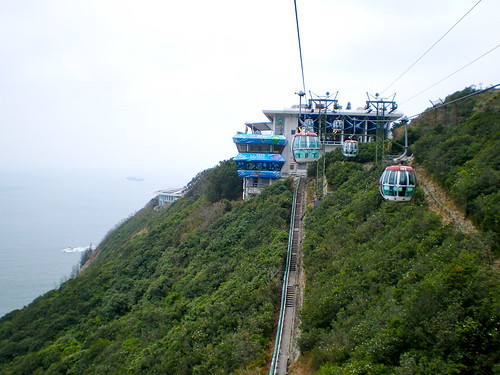I want to build upon the concept I described yesterday of ‘Vapour Literature.’
You could also call it Vapour Research or Vapour Evidence but they’re all the same thing: Empirical evidence of a fact that was never meant to exist as evidence in the first place.
The example I used was the photo-sharing site Flickr.
At the risk of exaggeration, I’d have to say that Flickr is one of the single greatest research tools the world has ever known. And it’s 100% pure Vapour Research.
Think about it . . .
Flickr is not a place for research. Instead, it’s a place for amateur and professional photographers to market themselves; a place for the vainglorious to brag about their vacations; and a place for elderly relatives to post photos of their grandchildren, community luncheons and overweight cats.
But it’s also a means to attain a pan-opticon snapshot of the entire world at every degree of scale. One gains knowledge through Flickr by pick-pocketing the photographic memories and legacies of people who bore witness to whatever phenomenon you happen to be interested in.
You may not have been there, but someone else was – and they’ve got a photo of it.
The people who took photos of the Ocean Park Gondola weren’t trying to demonstrate the fact that you could run two gondolas in parallel to each other side-by-side. They were just taking a photo of something they thought was interesting, neat or cool.
But to someone who is trying to demonstrate the fact that you can run two gondolas in parallel to each other side-by-side these photos become invaluable.
Right now we’re caught in a transition phase between the established order of peer-reviewed, academic “White Literature” and some newer form of literature that’s going to include more and more Vapour Research and Vapour Evidence, much of it coming from amateur sources such as flickr, blogs and chat rooms.
The vetting process of peer-review is essential and respectable but it is slow and lumbering, often out-of-date by the time it reaches publication. Like the paper it’s printed on, it’s basically dead the moment it leaves the presses. But the permanence of that death lends peer-reviewed literature a degree of credibility and cache that Vapour Research simply does not possess.
And let’s be honest – no one’s going to respect flickr as a source of research any time in the near future.
So the question is this: How do we integrate the speed, cost-effectiveness and the breadth of scope Vapour Research provides into the accuracy and disinterested objectivity of the peer-review process?


